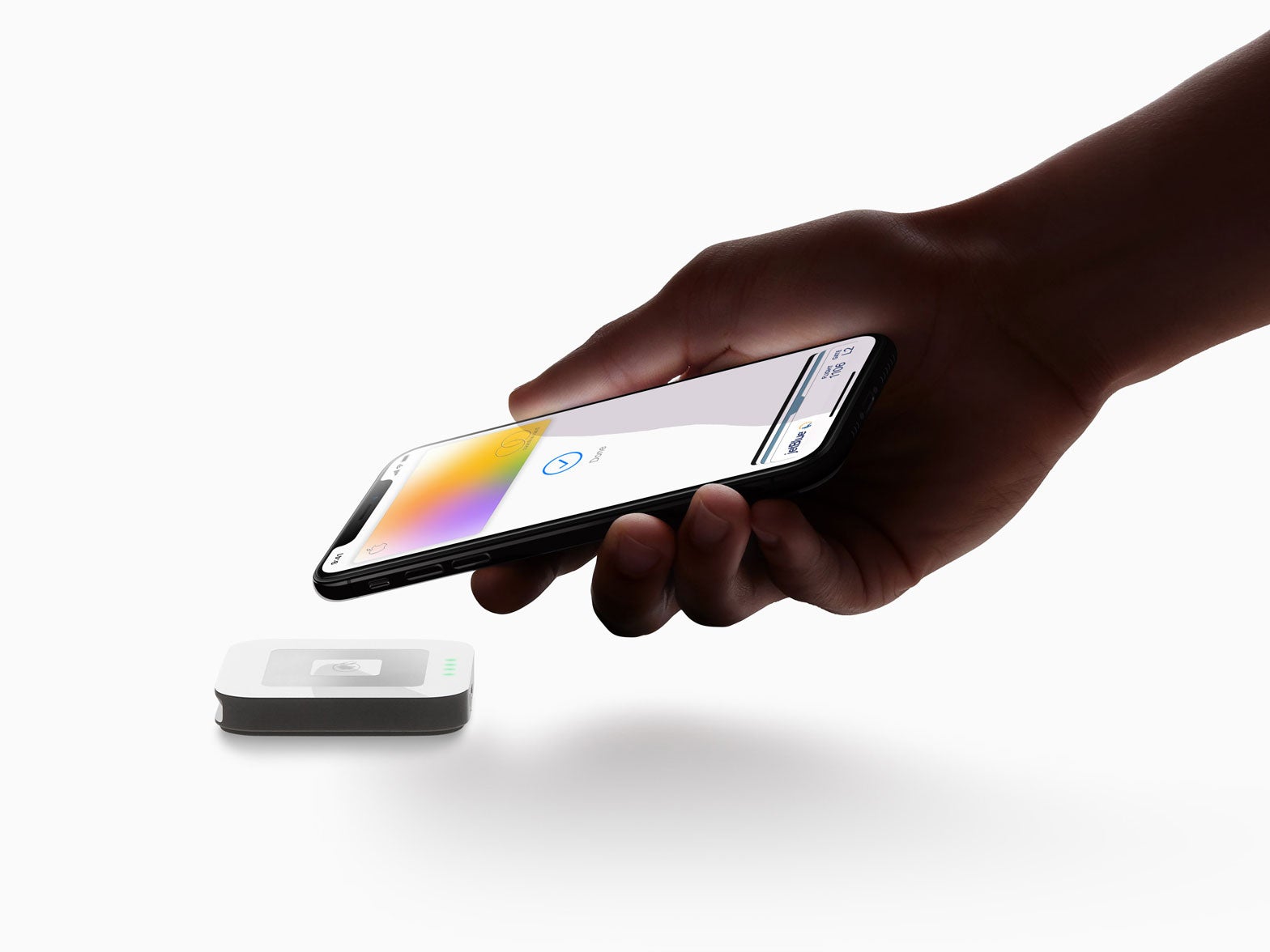
At the end of last month Apple’s latest series of announcements were broadcast from the Steve Jobs Theatre in Culpertino.
With the title “It’s Showtime”, Apple fans correctly predicted that the event would involve the unveiling of tv subscription service Apple TV Plus. However, the event also confirmed rumours of a different avenue for the tech giant: a credit card.
With Apple Pay launching 2014, and the meteoric rise of fintech since then, it comes as no surprise that Apple is looking to get its own slice of the pie, especially with iPhone sales slowing. But what impact will Apple Card have?
What can Apple Card do?
The premise of Apple Card is that it is built into features on the iPhone users will already be familiar with. It is accessed through the Apple Wallet app, offering customers the ability to manage their card from their iPhone.
With the aim of “transforms the entire credit card experience by simplifying the application process, eliminating fees, encouraging customers to pay less interest and providing a new level of privacy and security”, Apple Card allows customers to view their transactions and balance from the Wallet App, and access customer support by sending text messages in the messaging app. Purchases are automatically categories and recorded in charts to “better understand their spending”.
Available in the US this summer, the titanium card offers rewards programmes such as Daily Cash, which gives back a percentage of every purchase on customers’ Apple Cash card each day.
How well do you really know your competitors?
Access the most comprehensive Company Profiles on the market, powered by GlobalData. Save hours of research. Gain competitive edge.

Thank you!
Your download email will arrive shortly
Not ready to buy yet? Download a free sample
We are confident about the unique quality of our Company Profiles. However, we want you to make the most beneficial decision for your business, so we offer a free sample that you can download by submitting the below form
By GlobalDataIt uses machine learning and Apple Maps to label transactions with merchant names and locations, making it easier for customers to check whether a transaction is fraudulent. It also promises no late or overdraft fees, with interest rates that are “among the lowest in the industry”.
Security wise, Apple Card is equipped with a unique card number stored on a device’s Secure Element, the security chip used by Apple Pay, with purchases verified using Face ID or Touch ID.
Apple is partnering with Goldman Sachs and Mastercard to provide “the support of an issuing bank and global payments network”.
Will it disrupt the fintech sector?
Although Tim Cook claim that this is “the most significant change in the credit card experience in 50 years” may be an exaggeration, the expansion of big tech into fintech is notable.
Jo Howes, Commercial Director at digital banking software provider CREALOGIX, believes that it was only a matter of time before Apple moved into this space:
“Apple’s announcement that it is to launch its own credit card – Apple Card – comes as no surprise to many in the banking industry. It was only going to be a matter of time before one of the major tech giants got involved in the banking sector, as challenger brands have already demonstrated that it is possible to grow quickly in this space from a standing start.
“Like challenger banks, Apple has the advantage of being unburdened by legacy code or the cost of maintaining physical branches. However, unlike fintech startups, Apple can deploy significant financial and technical resources from the very start and tap into an enormous existing customer base.”
But is is revolutionary? Although it does have some interesting features, such as the Maps feature and the increased security, many features such as spending analytics, free withdrawals abroad and daily cashback are already available with many challenger banks
The Apple Card is catering to the convenient, personalised banking customers now demand, but the introduction of Open Banking has meant that accessing personal finance anaysis and advice directly from your phone is an increasingly saturated market, and from what has been revealed, Apple Card is not offering anything significantly different to existing products.
One of its most enticing features, Daily Cash, is in fact already available with the likes of the Citi Double Cash card and the Uber Visa card having similar features.
Nikolaus Suehr, the Co-Founder and CEO of London based InsurTech startup KASKO believes that the fast-moving fintech sphere means Apple Card may not be as innovative as Apple thinks:
“Much has been said and written since Apple’s announcement of Apple card. The Goldman Sachs-backed credit card which claims to be built on principles of simplicity, transparency, and privacy. While there has been a lot of buzz around this new offering, the question is whether such product is as unique as it seems to be. In fact, most financial services are not exactly unique. They might seem rare and unique at the beginning, but with the industry being as fast paced as it is, it is never for too long.”
However, what Apple has that challenger banks may lack is an established brand with a cult-like following. Capitalising on its reputation as a bastion of data privacy (with Apple claiming that it will not store user data generated via Apple Card and Neither will Goldman Sachs) it may be in a strong position.
Suehr said:
“What actually makes a difference is distribution access and branding, something that Apple is not short on. Being an established technology brand, Apple has the power to reach millions of users overnight and if it deems it necessary, it has the financial might to push this new offering at a loss for quite some time, offsetting the loss with its hugely successful product sales.”
The “Apple ecosystem”
What is notable is the extent to which Apple Card will mean users are increasingly locked into the Apple ecosystem, with the numberless card seamlessly integrated into existing Apple devices. For some this means an added convenience, but for others the prospect of “living your life on Apple” is disconcerting.
Rob Baillie, mobile comms expert at Comparemymobile believes that Apple Card will give customers another reason to stay loyal:
“By bringing out a credit card Apple is giving its customers more reasons to stay loyal to the brand, grouping mobile, TV, gaming and now banking services together. The ‘Daily Cash’ allowance gives customers cashback daily, which is a very clever way to entice customers with no extra charges and at low interest rates.”
Richard Hayes, CEO of Mojo Mortgages, echoes this, believing that valuable data generated will enable Apple to tailor and market products even more effectively:
“The Apple card could definitely make it harder for people to leave the Apple ecosystem. The card is essentially a retention tool, whereby Apple can use this data to tailor, market and price future products more intelligently. You put all of this together and it’s essentially an invaluable form of control that Apple will have over their customers.”
What is clear is that the company is keen to diversify its offerings, with the launch of a TV subscription service and Apple Arcade testament to this.
A worthwhile venture?
However, he is concerned that Apple may be concentrating its efforts in the wrong area, with Apple’s notable absence from the discussion around 5G, and the hype surrounding Samsung’s latest hardware releases, indicating that the company could be at risk of being left behind.
Baillie believes that the company should focus on improving its smartphone sales:
“However, it’s possible Apple could be spreading its activity too thin. Many believe the company should stick to what it does best and focus on mobile phones – particularly in terms of wireless charging, foldable devices and 5G. Putting its efforts into new areas could be a bid to distract from the success of mobile competitors such as Samsung and Huawei.”
Regardless of this, Howes predicts that other tech giants may follow suit:
“Banks need to be wary of other major tech giants following suit, and it would not be surprising if Amazon were the next tech giant to enter the banking market. In fact, a study last year showed that 65% of Amazon Prime subscribers would try a free online bank account offered by Amazon.”






